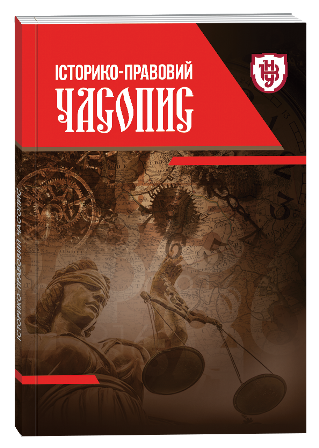THE BOUNDARIES OF CRITICAL THINKING
DOI:
https://doi.org/10.32782/2409-4544/2025-1/4Keywords:
critical thinking, paradigm, way of thinking.Abstract
The article is devoted to the topic of critical thinking. Nowadays, this topic is relevant across all branches of knowledge, both at the academic and practical levels. This applies to jurisprudence to no small extent. It is important for lawyers to be aware of the peculiarities of human thinking in order to theoretically avoid professional and public mistakes. Hundreds of studies have been devoted to critical thinking, most of which have empirical significance. There are many publications that, directly or indirectly, explore the theoretical features of critical thinking. To a large extent, the authors of these publications focus their attention on the positive outcomes of critical thinking. Advocates of critical thinking emphasize that this form of thinking is manifested in a person’s ability to go beyond established views, identify errors in conventional wisdom, and propose alternative, more effective approaches. Of course, it is also noted that, with proper training, a person can develop their thinking to a critical level. However, the question of the validity of the results obtained through a critical approach remains not fully clarified. In this regard, the scientific works of the American philosopher and historian of science Thomas Kuhn, as well as the German philosopher and psychologist Erich Fromm, are particularly interesting. These scholars, in their research on the peculiarities of human thinking, conclude that there are objective reasons that hinder critical thinking within every scientific community and society at large. Regarding science, Thomas Kuhn discusses an epistemological phenomenon known as the paradigm. In his view, the emergence of a paradigm is rooted in the social conditioning of human thought. A paradigm arises and is sustained by a specific scientific community—a group of individuals who share a common way of thinking and similar views on a particular problem. The paradigm defines the subject, parameters, and methods of research. It also governs relationships among scientists, determining who is right and who is wrong. Erich Fromm explores the same phenomenon but at the level of mass consciousness. Based on the conclusions of both scholars, it can be argued that critical thinking is not a panacea for avoiding mistakes. Any reinterpretation of reality is carried out by individuals who are members of a specific community, adhere to its values, and are influenced by it, whether consciously or unconsciously. Individuals who are overly focused on their community risk repeating past mistakes or generating new ones. This highlights certain limitations of critical thinking.
References
Кругляк М. І. Критичне мислення. Матеріали ІІІ частини онлайн-курсу «Логіка, аргументація, критичне мислення». URL: https://criticalthinkerua.wordpress.com. Київ. 2021. 193 с.
Терно С. О. Теорія розвитку критичного мислення (на прикладі навчання історії) / С. О. Терно : [посібник для вчителя]. Запоріжжя : Запорізький національний університет. 2011. 105 с.
Конверський А.Є. Критичне мислення. Підручник для студентів вищих навчальних закладів усіх спеціальностей. Київ. : Центр учбової літератури. 2020. 370 с.
Мілян Р.С. Порівняльний аналіз дефініций «критичне мислення» та «логічне мислення». Сучасні інформаційні технології та інноваційні методики навчання у підготовці фахівців:методологія, теорія, досвід, проблеми / Зб. наук. пр. Випуск 54 / редкол. Київ-Вінниця : ТОВ фірма «Планер». 2019. 160 с. с. 121–125.
Надурак В.В Критичне мислення: поняття та практика. Філософія освіти. 2022. Том 28 № 2. с. 129–147.
Кун Томас. Структура наукових революцій. Переклад О. Васильєва, Київ. PORT-ROYAL. 2001. 228 с.
Фромм Еріх. Мати чи бути? : пер. з англ. / Еріх Фромм. Київ : Укр. Письменник. 2010. 222 с.







